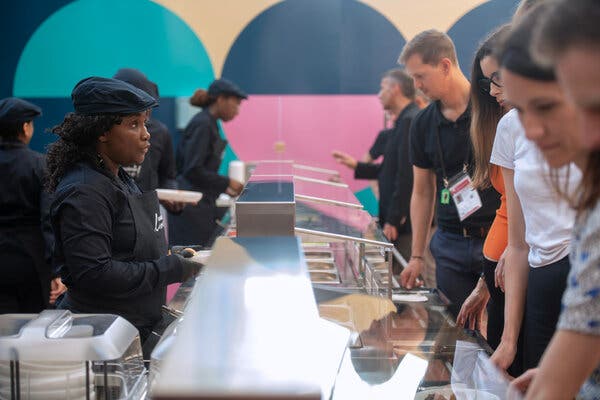The French will have to meet a welter of health and cultural requirements, but they still want to serve up some delight.
Listen to this article · 6:43 min Learn more
Reporting from Paris
The unforgettable moment when a competing athlete first enters the Olympic Village in Paris may be defined not by the complex’s impressive size and sweep, but by a smell: the scent of freshly baked baguettes.
This is by design.
“Every French village has a bakery,” said Guillaume Thomas, who works in communications for the Paris Olympics. “We want people to be able to smell the baguette as they enter.”
A boulangerie set up at the mouth of the village will churn out more than 2,000 baguettes, croissants, pain au chocolat and focaccia daily, and even offer baking classes for athletes seeking respite from the grueling competition.
For the 15,000 Olympic athletes competing this summer, food is vital for optimizing performance. The French would like to sprinkle in some delight.
The centerpiece of the sprawling Olympic Village, once a power plant and then a film studio, is a network of six restaurants that will serve athletes around the clock. Yes, restaurants. Or so the organizers call the places known as dining halls at past Olympics.
“It was out of the question to call it anything else,” said Philipp Würz, the food and beverage manager for the Olympics.
Thank you for your patience while we verify access.
